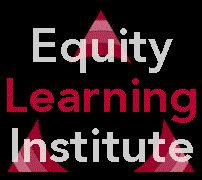
|
|
|
|
an EdChange project by Paul C. Gorski
|




|
Getting Started: Respect Activity (Introductory Level)
Ask everyone to find someone in the room who they do not know. Instruct them to introduce themselves to that person, and spend five to ten minutes talking about respect. What does it mean for you to show respect, and what does it mean for you to be shown respect? After the allotted time, ask the participants to return to their seats, and open the discussion. What ideas did people discuss? Common responses include the "Golden Rule," looking somebody in the eyes, being honest, and appreciating somebody's ideas even when you do not agree with them. Each of these responses offers interesting points of reflection. They each are informed culturally and hegemonically. So once people have returned to the big group for processing the activity, be sure to inquire where people's notions of "respect" come from and who those notions serve and protect. Does everybody really want to be treated the way you want to be treated? Is it respectful in every culture to make eye contact with whomever is speaking? What if somebody's ideas are oppressive--should we still respect them? And to whose benefit? It is important to mention that respect is a crucial ingredient in any discussion, but especially in a discussion of often-controversial issues such as racism, sexism, and economic injustice. The point is to learn from our differences--to understand each other's understanding. The point is not to agree. But the point, as well, is to reflect critically on our assumptions and socializations around the concept of respect. This activity touches many bases. First, it starts the crucial path toward building a community of respect. This is the first step in maintaining a constructive exchange regarding issues related to equity and social justice. At the most basic level, participants meet someone they did not know and exchange ideas with that person. Second, the community is built through an understanding of how the group perceives respect and how we negotiate its meaning. Third, the similarities and differences in participants' ideas about respect begin to show the first signs of similarities and differences within the group on a larger level, often in ways that reflect power and privilege. [ Return to the Awareness Activities Page ]
|